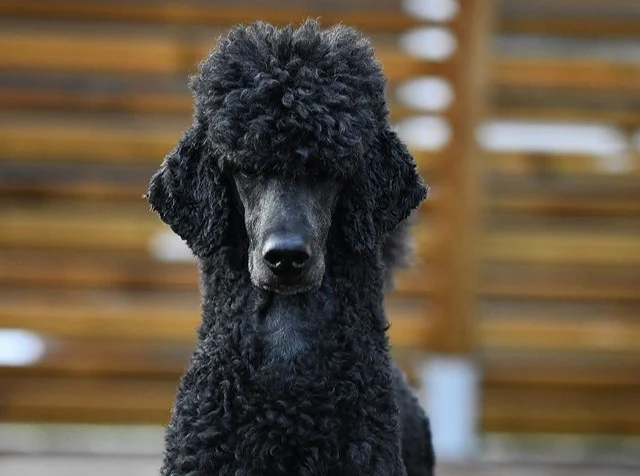Poodles are one of the most recognizable breeds in the world, with their distinctive curly coats and sweet dispositions. However, there are many things that people don't know about these dogs. Here are 10 fascinating facts about Poodles.
1. They started out as hunting dogs
The poodle is a breed that has existed for several centuries now. In the past, this dog was very well adapted to hunting: this is certainly what explains the grooming that makes it look like a lion of the savannah. Etymologically, the French word " caniche " comes from " cane ", the female of the duck. The word "poodle" would come from the German word "pudel" which translates as splash, or eventually the action of dabbling. This can be explained by the fact that this dog was originally used for hunting birds.
2. They are from Germany
Despite being commonly associated with French culture, the first Poodles were developed in Germany along the country's rivers and lakes. The breed is recognized as German by major cynological organizations like the American, British, and Canadian Kennel Clubs. However, the International Canine Federation recognizes the Poodle as a French breed due to a political decision made by German and French representatives to avoid disputes.
3. There are different types of Poodles
Currently, three types of Poodles are recognized: Standard, Miniature, and Toy. The Standard Poodle can reach up to 18 inches in height, while the Miniature Poodle is between 10 and 15 inches tall, and the Toy Poodle is under 10 inches. There is also an unofficial Giant Poodle variety that can reach up to 24 inches. Additionally, there is a Cordelé variety, with a coat of tufts and curls similar to the Puli breed.
4. Many breeds are descended from Poodles
Due to their genetic qualities, Poodles have been used to develop other breeds, including the German Schnauzer, Irish Water Dog, English Curly-Coated Retriever, and Maltese, Frize, and Havanese Bichon. They have also been crossed with other dogs to produce hypoallergenic breeds.
5. They were once acrobatic dogs
Poodles are highly trainable and intelligent, which made them popular performers in circuses and traveling shows throughout Europe. They were often seen performing stunts, acting as clowns, and wearing eccentric outfits to attract attention.
6. They were part of the European aristocracy
Starting in the 16th century, Poodles became a favorite of royalty and high society in France, Spain, and Prussia. In Spain, they were popularized by artists such as Goya and Dürer. In France, they were part of Louis XVI's entourage, and there is evidence that they also accompanied Czar Alexander.
7. They are highly intelligent
A 1994 study by canine psychologist Stanley Coren found that Poodles are one of the most intelligent breeds in the world. They have good concentration and memory, making them easy to train.
8. There are many haircuts to choose from
There is a wide variety of haircuts for Poodles, from classic to modern styles. The Continental cut is the most well-known, featuring sheared hair from the waist to the hindquarters, with voluminous fur on the chest area and pom-poms on the legs and tail. Other styles include the Modern cut, Teddy bear cut, "Puppy cut" (for Miniature or Toy Poodles), German trim, summer cut, and Japanese cuts.
Read also: Discover the Bedlington Terrier
9. They are long-lived dogs
Poodles have an average lifespan of 15 years, which exceeds that of many other breeds. According to the American Kennel Club, they can live up to 18 years as long as they don't suffer from any degenerative diseases or are overweight. The longest-lived Poodle on record was a Miniature named Uncle Chichi, who lived to be 26 years old.
10. Ideal dogs for allergy sufferers
Poodles are considered hypoallergenic, meaning they don't cause allergies in people who are allergic to dog hair. Although no breed can guarantee it 100%, this breed is recommended for those who suffer from allergies. Additionally, they shed very little, which is also a plus for the more fastidious.

